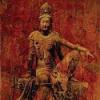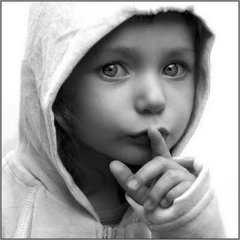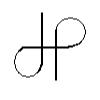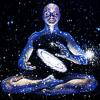Search the Community
Showing results for 'Dream'.
Found 7,591 results
-
yeah the lucid dreaming technique i was using was pushing blood into my head. sometimes increased bloodflow to my brain just happens, those nights being the ones where i have a crazy or sexual dream
-
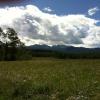
Introduction to Dzogchen Retreat with B Alan Wallace
Jeff replied to konchog uma's topic in Buddhist Discussion
When you say "lucid dream", does that mean that you don't think Sambhogakaya is "true/real"? Additionally, that there are no primordial Buddhas/Beings? Thanks.- 451 replies
-
- Alan Wallace
- Dzogchen
-
(and 1 more)
Tagged with:
-
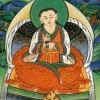
Introduction to Dzogchen Retreat with B Alan Wallace
RongzomFan replied to konchog uma's topic in Buddhist Discussion
This is a shell game as Garab Dorje, Padmasambhava, and Vimalamitra etc. are not historical characters, but are rather the manifestations of the terton's own wisdom in a lucid dream, where clarity is 7 times higher. But to play this shell game, Garab Dorje was a nirmanakaya.- 451 replies
-
- 1
-

-
- Alan Wallace
- Dzogchen
-
(and 1 more)
Tagged with:
-
Chance would be a fine thing. You get to my age and an 'erotic' dream involves pipe and slippers. Nothing else, just pipe and slippers. The really crazy ones might have a nice cup of tea and a sit down in there as well but there has to be a full moon for those wild n whacky dreams to happen.
-
Although rarely discussed, there are two Present's; a relative and an absolute. "Relative and absolute, These the two truths are declared to be. The absolute is not within the reach of intellect, For the intellect is grounded in the relative." Shantideva 9.2 The Tao is synonymous with the Absolute Present, whereas Yin/Yang is synonymous with the relative. The Buddhist term Tathagata is also synonymous with the Absolute Present. Lao Tzu said, "the Tao doesn't come and go." Buddha said, "the Tathagata does not come and go." Similarly, the Present does not come and go. Time come and goes,...there is no Present in time. What many believe to be the Present, is not the Present. As such it is easier, although for most, equally as futile, to point to what the Present is not. The Present is not the past, nor the future. The Present of an awakened person is not in time. There is no Present in time. It's impossible. The sleep of sentient beings is maintained within a Relative Present. To the Buddha, the world is maya, a mirage, an illusion, and through the six senses, the only reality we know. To the Buddha, nothing is harder communicating with than a mind that believes it arises from the 6 senses. René Descartes said, "All that I have tried to understand to the present time has been affected by my senses; now I know these senses are deceivers, and it is prudent to be distrustful after one has been deceived once." For most, they do not believe their senses lie, thus they will find an excuse to forget or deny the honesty needed for real observation. As ego and the 6 senses are part of time, and can only observe the vibrations or motion within time, the real Present is only accessed through something beyond the 6 senses, or our human-ness. This "something" is accessible to everyone. The Buddha said, nothing is easier to enlighten than a mind on the Right Path. Even the re-membering of the mind for the Right Path is easy. The "Right Path" is the Short Path,...the path of an impeccable Taoist. An impeccable Taoist is impeccable with her word. Belief, faith, hope is never impeccable,...belief, faith, hope, is always dishonest. Mind training is a practice for self-remembering. Not for re-membering the intellect, but re-membering Mind. An Absolute Bodhicitta aphorism is a ground upon which Bodhicitta, or an Awakened Mind can be realized. For example: *Treat everything you perceive as a dream. *Find the consciousness you had before you were born. *You will never understand Who you are, until you realize When you are. *There is no Present in Time Bodhidharma said, "The mind is always present. You just don't see it" This is not in reference to the cerebral or sciential mind, but the sapiential or Heart Mind. Lao Tzu said, "Intellectual knowledge exists in and of the brain. Because the brain is part of the body, which must one day expire, this collection of facts, however large and impressive, will expire as well" Lao Tzu said, "the ego is a monkey catapulting through the jungle; totally fascinated by the realm of the senses....if anyone threaten it, it actually fears for its life. Let this monkey go. Let the senses go." Leo Tolstoy said, "Truth, like gold, is to be obtained not by its growth, but by washing away from it all that is not gold." That is how the Now is uncovered. Eckhart Tolle wrote, "we need to draw our attention to what is false in us, for unless we learn to recognize the false as the false, there can be no lasting transformation, and you will always be drawn back into illusion, for that is how the false perpetuates itself" But as Goethe exclaimed, "Truth lies in the depth, where few are willing to search for it." The Present is not ineffable; only denied to protect the false. Plutarch purportedly said, "The present offers itself to us only for the second and then eludes the senses." Wei Wu Wei said, "Phenomenally, we can know no present, as it must be in the ‘past’ before our senses can complete the process of recording it, leaving only a suppositional past and future; noumenally, there is no question of ‘past’ or ‘future,’ but only a presence that knows neither ‘time’ nor ‘space.’ "
-
Yeh there seem to be a few theories on sleep and I dont think tibetans would do dream yoga like that if it was really unhealthy, but really I have no idea
-
Ok my question/statement was to do with sleeping qigong. I can get into the state fairly easy but am wondering if it is better to break my night off into two hour segments, like they do with tibetan dream yoga and different chakras, but use an alarm clock. Also much easier to do it when eating light and earlier dinners. I did it last night except for 2 out of 8 hours in the middle. Or is this bad for sleep because 8 hours without losing meditativeness, probably just nod to sleep. Also I remember thetaoiseeasy mentioning about dreamless sleep and sleeping light. I did get some visions a bit at the begining but only did a tiny bit of dreaming qigong guess it will come in time if neccessary
-
Did you give up your super hero dream - so you could have time to post on TaoBums all day?
-
LOL,...another Christian who "definitely" knows Jesus. The most important figure in what Westerners understand as Christianity was the mass murderer, Saul/Paul of Tarsus. According to eminent theologians, such as Robert Eisenman, the Essenes called this self-ordained apostle of the Gentiles "the Spouter of Lies." Among scholars, the Biblical Jesus/Yeshua usually appears in about the fourteenth place in importance. Was he an actual historical figure? Even Paul did not appear to believe that Jesus was an historical figure; for example, see Hebrews 8:4. That is to say, Paul never identified Jesus apart from an entirely mystical setting. Without Paul and several other Church fathers and aristocrats, Christianity, as known today, would not exist. Note: some question Paul’s authorship of Hebrew’s, however, that does not necessarily alter the message. Today’s Christianity, including Catholicism and every other religious sect that uses, in whole or in part, the so-called Christian Scripture, was woven from a hybrid of Pauline doctrines, a few historical facts, and various fabrications. Several early Christ sects, for example, the Sevrians, Encratites, Ebonites, Naassenes, Nazarenes, etc., rejected Paul’s epistles. The prototype of a personified Christ was developed by Paul’s followers and aristocratic admirers from the Talmud stories of Yeshua Ben Stada, the locally notorious Yeshua [Jesus] the Notzri [Nazarite]. This Jesus, born in 7 BCE during a Jupiter–Saturn conjunction, had a stepfather known as Joseph and a mother named Mary. On the eve of Passover in 28 CE, he was convicted of sedition by Pontius Pilate and subsequently hanged. His hanging was not the planned means of death, but proceeded because those who were to stone him were late. Since the end of the day was near, which would have postponed his burial until after Passover, the soldiers allowed the alternative death by hanging. Following his death, his followers dubbed him the Passover Lamb. A Nazarite or Notzri, meaning consecrated, was a Jew who took the ascetic vow described in Numbers 6:1–21. Among famous Nazarites was James the Just, whom the Ebionites revered as the legitimate apostolic successor of the Nazarites. Jesus the Nazarite (not of Nazareth or Galilee) is probably the same Jesus whose sayings were collected by Didymos Judas Thomas in the apocryphal Gospel of Thomas. This Gnostic or cardio-centric gospel of "secret sayings that the living Jesus spoke" appears to have been compiled in response to Paul’s new cerebro-centric religion. Both the Gospel of Thomas and the Epistles of Paul predate the canonical gospels by at least a generation. Neither the Gospel of Thomas nor the Q source contained a crucifixion, the concept of Jesus dying for the sins of others; a resurrection; or a personified Christ. Thus they conveyed nothing that would support the divinity of Jesus, which later became one of the core beliefs of the new Christianity. The story of present-day Christianity is part of a larger mythology. The evidence suggests that the actual principle of Christ grew out of Memphite philosophy—literally, the Krst, the anointed ones, like the Risen Horus/Apis. Then in the fifth century BCE, the word Christos, referring to an "awakened one," crept into Greek subculture, and this word can be found in the works of classical writers, such as Aeschylus and Herodotus, the father of history. Curiously, this was the same time in which Siddhartha Buddha, the light of Asia, realized that religion is a man-made fabrication and a direct result or consequence of the desire for things to be other than what they are. According to recent research, many ideas in the New Testament were lifted from Buddhism. In the third century BCE, through Ptolemy Soter, a lover of all things Egyptian, a bearded, long-haired Greek image was merged with Egypt’s mystical Krst philosophy. This image, Sarapis, would become Christendom’s representative portrait of their Jesus/Yeshua. If there was an historical Jesus/Yeshua as presented in the gospels, he would have had short hair and a close-cut beard, as was the custom of the Jews and the command of Paul. For example, 1 Cor. 11:14 suggests that long hair brings shame to a man. More similar to the Sarapis model was the link that Jesus/Yeshua was a Nazarite, like the Old Testament Samson. Members of the religious sect of Nazarites were said not to cut their hair. In addition to their unkempt hair, the Nazarites also vowed to abstain from the manufacture or consumption of intoxicating beverages and from contact with the sick or corpses. Jesus/Yeshua being a Nazarite does not harmonize well with certain fabricated gospel tales, such as the ritual consumption of wine and the raising of the sick and dead, which were woven into the canonized version of the myth. This reminds me of the fanciful story of Mason Weems, invented after the death of George Washington, about George Washington and the cherry tree. Weems fabricated this story to broaden the character of America’s first president and to make him seem more appealing. The Jesus Christ myth was interwoven from many sources, including the Egypto-Greek Sarapis, whose devotees, according to Hadrian, called themselves Christians and bishops of Christ. Sarapians had temples in most of the major cities of the time, including Alexandria, Rome, and even Bithynia, where Pliny the Younger was governor at the beginning of the second century CE. Under Trajan (who was married to Pompeia Piso), Hadrian was governor of Syria. As every Bible hobbyist should know, as per Matthew 4:24, Jesus’ fame was said to reach throughout all of Syria, yet the evidence shows that no one there knew Jesus’ followers as Christians until well into the second century. Why was that? Gnosticism, the original form of Christianity, arose from a Greco-Egyptian philosophical fusion, as mentioned above. Gnosticism was an important part of the neo-Christian construct. Gnosis was not an outgrowth of neo-Christianity, as revisionists suggest. Today’s Christian persuasions are a product of Gnostic Christianity, not the other way around. We could say that Christianity was built on the DNA of Gnosticism. This neo-Christian fabrication from Gnosis and Krst, from gnowledge and the Anointed One, can also be substantiated through the Book of Enoch, from which over a hundred phrases were introduced into the New Testament. Enoch was written before 170 BCE, and several Aramaic copies were purportedly found among the Dead Sea fragments of the Gnostic gospels from Qumran. These Gnostics, from the time of the Julian clan of emperors, maintained that Christ was not a man in human form, as claimed in the gospels, but an individual goal of an initiate to realize a Christ Consciousness, the Logos. The Logos represents a mystical rebirth without sexual union, an awakening to a reality beyond duality, a palingenesis from the dream of perception. Duality is inherently a sexual reality, in which consciousness is fragmented. Christ Consciousness is an unfragmented consciousness, in which there is neither hope nor fear. The Jesus as defined in the gospels could not have been a Christ. Neither Paul nor his followers could grasp gnosis, that is, to gnow themselves through the heart of essence. Like many today, frozen in their conceptual experiences, Paul needed a more physical, hope-driven, fear-based path. The ignorant respond to hope and fear. Thus, from the expectations infused through the Pauline church, the concept of a personified Christ grew and entered the groupthink of the anti-Gnostic Paulines and those, like the Roman aristocrats, who wished to exploit it. Before 95 CE, when history suggests that Apollonius died and rose from the dead, there is no mention of a personified Christ or the four gospels. There is no known contemporary scriptural record of the life and times of Jesus/Yeshua. For neo-Christians, so fond of quoting Bible babble, what wasn’t said in the first century that which is curiously missing, is as interesting as the fabrications and contradictions of what was said then. For example, in the writings of Clement Romanus, the Pauline bishop of Rome circa 95 CE, there is not even a tinge of gospel references. Yet Luke 1:1–2 specifically implies that many eyewitness followers had already been writing. Adding to the intrigue, Clement, whom Tertullian and Jerome suggest was the direct successor of Peter, was also said to be a Flavian, that is, a relative of the men who were then the emperors of the Rome. Sciolistic Christians vaunt that the historian Josephus, in two remarks that have been taken out of context, verifies that Jesus/Yeshua existed. Today, however, even conservative scholars agree that those quotations from chapters 18 and 20 of the Jewish Antiquities, a history of the Jews, were later Christian interpolations. Such conclusions are consistent with Origen, an ante-Nicene father, who in the third century CE indicated that such a declaration from Josephus of a Jesus Christ did not exist in his copy of the Jewish Antiquities. Furthermore, no one else before the fourth century CE ever mentioned such an important reference from this often-cited source. Another claim by neo-Christians as to Jesus Christ’s historicity comes fromTacitus’ Annals 15.44, the comment of how Emperor Nero persecuted Christians after Rome’s fire of 64 CE was actually about Gnostic Christians, worshipers of Sarapis, not followers of Jesus or Paul. It was these Christians, the original Christians, whom the author of the second-century Gospel of Matthew called false Christians. Neo-Christians appropriated the name Christianity, as they lifted terms from most of the cultures that they absorbed. In his letter to the Consul Servianus, Hadrian (71–138 CE), who was the governor of Syria under Trajan, called the Sarapian leaders "bishops of Christ." Up until the beginning of the Second Century, the Egypto-Greek Sarapians, including those in Syria, called themselves Christians and bishops of Christ. As you will read, there was no reason for Rome to kill the followers of Paul and the Gospels which arose from Mark. Considering a set of all knowledge for that period, not a single Jewish, Roman, or Greek historian, scribe, or writer mentions before 95 CE the Jesus Christ depicted in the gospels. There are no artifacts, no works of carpentry, and no physical evidence that a Jesus Christ ever existed. For such a famous person, professed to have been known far and wide, it is notable that there is not a single word of him from Pliny the Elder, Seneca, Gaius Petronius, the Syrian Mara, Philo Judaeus, Pausanias (who traveled throughout Syria), Theon of Smyrna, Thallus of Samaria, Silius (Consul of Asia Minor), or the Syrian-born Lucianus. However, the word scribe(s) is mentioned at least sixty-six times in the New Testament. Thus, repeatedly, what was not mentioned says much regarding the history of the invention of present-day Christianity. For instance, why was the capital of Galilee, Sepphoris, known as the ornament of Galilee, just four miles down the hill from the archeological site of Nazareth, not alluded to in the Gospels, although they all mention Nazareth? Could it be that the authors of the gospels were unaware that the city existed because Rome leveled it during the Jewish Revolt of 66–71 CE, some forty years after the Talmud’s Jesus was hanged for sedition? It is unlikely that Nazarites lived in Galilee, but were instead Jerusalemites. VMarco
-
Hello, I am a Muslim and will try to answer from my point of view: The trinity concept is not a teaching of Jesus Christ. Jesus Christ was a Prophet not son of God. There is only one God Almighty. Of course, there is also Holy Spirit also created by God. Please read the link about Barzakh and especially Ibn Arabi's definition (http://en.wikipedia.org/wiki/Barzakh) Major Scholar, Ibn 'Arabi, defines Barzakh as the intermediate realm or "isthmus". It is between the World of Corporeal Bodies and the World of Spirits, and is a means of contact between the two worlds. Without it, there would be no contact between the two and both would cease to exist. It is described as simple and luminous, like the World of Spirits, but also able to take on many different forms just like the World of Corporeal Bodies can. In broader terms Barzakh, “is anything that separates two things”. It has been described as the dream world in which the dreamer is in both life and death.[13]Barzakh can also refer to a person. Chronologically between Jesus and Mohammad is the contested Prophet Khalid. Ibn 'Arabi considers this man to be a “Barzakh” or the Perfect Human Being. Chittick explains that the Perfect Human acts as the Barzakh or "isthmus" between God and the world.[14]Ibn 'Arabi's story of Prophet Khalid is a story of Perfect Human being. Ten commandments is a must. But of course, they are not sufficient for Moral. Take ten commandments as a foundation. The building which is good Akhlaq Akhlaq is Moral. Please refer to: http://en.wikipedia.org/wiki/Akhlaq http://www.mysticsai...-on-akhlaq.html Both Old and New Testaments have been changed by men. It is difficult to distinguish the original and manmade verses. This is the sole reason why one has to refer to Holy Quran, even a single letter have not been changed. I am not a Christian, but generally speaking you are right. The important point neither Orthodox nor Catholic Church represent the original teachings of Jesus Christ. Saint Peter changed the religion in a great extent. The first council of Nicaea just fixed the chnages in God's religion permanently. (http://en.wikipedia....uncil_of_Nicaea) A big pity for all Christians. No objection to this prayer, I liked it. Not so important items.
-
Hi TI Why do assume that everyone has to experience something in exactly the same way? I have never had excruciating pain etc. for me it has been gradual...I guess because I think I enjoy the process more than the outcome. I don't care a hoot for getting enlightenment or anything like that. As I grow older I realize that if something has to happen it will. So I'm a theistic advaitin dao bum I reify the unknown unknowable - I have a Ishta-devata and I prostrate in front of him. I ask him to show me the way. So far he hasn't let me down even when I have. I was given a mantra in my dream by an unknown sadhu and that mantra has rescued me front the doldrums many a time. I don't obsess with it, I simply let it guide me when I have an opportunity to... Anyway getting back to the point. I have felt coolness when energy rises up. So pulsing is literally an opening/closing sensation (sometimes slow, sometimes very rapid). And it rises up along the spine (like MCO) to the crown point. Exactly the same as in tai chi. This is during pranayama with Antara kumbhaka of ~ 1 minute in a 1:4:2 ratio. Only it is more "forceful" as compared to tai chi. The LDT is a wisp of smoke that moves around. It is Taiji itself so it is expanded and contracted at the same time. It turns and the turning causes the energy to circulate. No need to apply root locks etc. dropping the tail bone initially applies enough pressure to make it turn. When it starts to turn, it will drive the energy I think we tend to over-complicate things a lot. Just chill and enjoy your practice man!
-
Hi I've been into spiritual practices and meditating for years. I've experienced samadhis, some jhanas, strange experiences and other things, so I'm not a beginner. I have been studying anapanasati much more deeply, the variations and techniques, for the last month or so. A week ago I received the book called "Stilling the Mind" by Alan Wallace. I think it is a great book because it answered many of my questions and showed me a few pointers in Shamatha practice. The advice I took to heart was "Rest in the natural state, without distraction, without grasping". Just "let it be". Good advice. The other advice I took was that you can't get enlightened with an unstable mind. Hence, Shamatha. So, during my meditations this week, instead of repulsing the visions, pushing away the thoughts and returning to my object of concentration, I decided to just "let it be". When I did that, I did notice that everything eventually dissolves into the substrate consciousness. I also noticed that I got much deeper than I usually get, as exmplified by the luminous brilliant colors; I seemed to have passed through most states or stages fairly quickly.. the heat stage, the visions stage (lucid dreams-visions), the pulsing light at the brow, the golden rainbow light of self (don't know if that is a stage), awareness watching awareness.. even watching slices of reality like cascading panes or slices appear as if frozen in time.. Last night, after reading about the technique of "breathing in attentiveness and exhaling relaxation" in another one of Alan Wallace's book about Dream Yoga, I decided to do that for my before-bed meditation at 12:15 am. At first, I just sat and watched my thoughts without grasping and I noticed that there weren't that many. Then, I turned my attention to my breath and then started breathing in attentiveness, and totally relaxing the body on the exhales. I did this for about 5 minutes when all of a sudden, my whole being shifted. I felt this movement, but it felt like the whole locus of the conscious mind had disengaged from it's usual location. It felt like a swoon, like I was about to pass out, or that my entire conscious field was diminishing and sinking rapidly. This feeling was very intense. This was accompanied by the vision of very black space growing larger. I felt like I was dying. There was immense fear. I held on for a bit and noticed that my heart was beating faster. I also noticed that whole top of my head had changed into a different texture and I could feel droplets of sweat starting to form. I also noticed that the watcher, the place where my location of feeling of self turned into an array of golden and rainbow lights streaming forth. Due to the fear, I had to stop, but I did make an effort to go as far as I could and pick up as many impressions and sensations as I could before I stopped. Now, I suspect that the increase in heart rate and sweating top-of-the-head is due to some kind of fear reaction. But what I would like to know is this: What is that experience? Is this the start of nirvikalpa samadhi? Is this what occurs when one breaks through the substrate consciousness and goes into the beyond? It feels like a death experience. It does not feel good in any sense of the word. It is very scary for me, like "I" is going to be anihalated. At the same time it was awesome. I look at it like "Death came calling". But I won't really die, will I? I will probably fall over, bang my head and then "wake up" hours later with numbness in the various body parts, feeling quite disoriented, right? I'm familiar with astral travel, and believe me, this "death experience" far surpasses any astral projection. I recall that Ramana had an experience of death when he was in school and this was what apparently enlightened him. Is this what is happening to me? Are there any equivalent stories or recounts of this kind of experience in Buddhism? Have you experienced nirvikalpa samadhi? Does this sound like it, or at least the start of it? Any comments will be greatly appreciated. TI *Edit: Ha ha, figured out how to edit the title.. You have to use the full editor..
-
I Wouldnt dream of it ! ..... maybe ( besides you are already materialist )
-
Last night in my dream, I smacked 6 different people, and they all felt being smacked. Dreams must be real. The truth is,....the 5 skandhas are not real,...although they believe they are. Feeling a smack is a consequence of the desire for things to be other than they are,...everything that involves the 6 senses is other than things are. Even science has a partial understanding of that,....René Descartes stated, "All that I have tried to understand to the present time has been affected by my senses; now I know these senses are deceivers, and it is prudent to be distrustful after one has been deceived once." In other words,...the smack is a lie.
-
IF..... IF you can keep your head when all about you Are losing theirs and blaming it on you, If you can trust yourself when all men doubt you, But make allowance for their doubting too; If you can wait and not be tired by waiting, Or being lied about, don't deal in lies, Or being hated, don't give way to hating, And yet don't look too good, nor talk too wise: If you can dream - and not make dreams your master; If you can think - and not make thoughts your aim; If you can meet with Triumph and Disaster And treat those two impostors just the same; If you can bear to hear the truth you've spoken Twisted by knaves to make a trap for fools, Or watch the things you gave your life to, broken, And stoop and build 'em up with worn-out tools: If you can make one heap of all your winnings And risk it on one turn of pitch-and-toss, And lose, and start again at your beginnings And never breathe a word about your loss; If you can force your heart and nerve and sinew To serve your turn long after they are gone, And so hold on when there is nothing in you Except the Will which says to them: 'Hold on!' If you can talk with crowds and keep your virtue, ' Or walk with Kings - nor lose the common touch, if neither foes nor loving friends can hurt you, If all men count with you, but none too much; If you can fill the unforgiving minute With sixty seconds' worth of distance run, Yours is the Earth and everything that's in it, And - which is more - you'll be a Man, my son! Rudyard Kipling
-
The "infinite" is a mathematical concept. Most people fail to recognize that the foundation of a mathematical statement is only true in relation to the assumptions of "set theory," the assumption that any collection of objects actually exists. All objects, without exception, are indeed mathematical. The reason for that lies in the multiplying/dividing nature of the optically organized universe. However, the modern cosmological understanding of the universe suggests that no objects exist, indicating that mathematics pivots on a misguided belief in materialism. The sciences usually expound on relative reality through the assumption that object-ive reality actually exists. However, objectivism is based on objects, and those objects are no more real than last night’s dream. Infinity is another voguish belief topic among the object-ive minded. Theories of infinite space, time, and quantity are just more object-ive math. Definitions of infinity are related or relative to the concept of immeasurability in space, time, or quantity. However, if there is no space, time, or quantity, as implied by quantum cosmology, then there is no infinity. The Tao is not within creation, any more that One and Many are within zero. For example, No-Boundary Theory postulated by Quantum Cosmologists Steven Hawking and Jim Hartle, which says that since time loses characteristics that separate it from space, the concept of a beginning in time becomes meaningless. There is no BigBang, no singularity, no creation, no Creator, because there is no time. The terms creation/creator implies a before and after, or time. The Tao does not "come and go" within your delusion of time. Lao-zu said, "Recognize that eveything you see and think is a falsehood, an illusion, a veil over the truth." Lao-zu said, "there is nothing more futile and frustrating than relying on the mind. To arrive at the unshakable, you must befriend the Tao. To do this, quiet your thinking." Lao-zu said "the Tao doesn't come and go." Please cease describing enlightenment as if you understand what it is,...nothing in your posts suggests even a close resembleness to enlightenment. "As long as your shallow worldly ambitions exist (ie, hopes, beliefs, attachments to traditions) the door will not open." Lao-zu The Short Path and Long Path are no where near the same paths: http://wisdomsgoldenrod.org/notebooks/23/5
-
I've had so many strange experiences meditating, I couldn't even mention them all. What others have said is true, you shouldn't focus on them, address them and let them go. Now, with that said, I will try and shed some light on why these experiences happen, at least as I believe them to. We like to believe that meditation accesses a part of our psyche that we normally don't use, well that's not true, in fact it accesses a part of the brain we use throughout the day. When we take a long drive and can't remember most of the trip, we've accessed that part of the psyche. When we dream, we've accessed that part of the psyche. When we suddenly realize someone has been talking to us, we were accessing that part of the psyche. The truth is that we access this part of the psyche more often than we know, but we don't consciously access it. This part of the psyche has many uses, it helps to regulate our response to pain for instance, but it also helps us to process enormous amounts of information that we can't possibly pay attention to, now when you start paying attention to that, weird things happen, sometimes really weird. Well this is the crux, you can focus on the weird, or you can focus on your practice. I'm not sure what you're trying to accomplish with your practice, but I do know what I try to accomplish, which is developing a deeper insight into the self. Now these transient sensations aren't the self, but rather what the self experiences, so focusing on them can distract you, but also they may be distracting you on purpose. In other words a part of you is sending a signal to take a break from what you're doing. When something weird happens, there is nothing wrong with stopping then and there and addressing it, but trying to repeat it may not be the best idea, because you're just repeating what your psyche is telling you not too, sort of like picking at a scab. Don't pick the scab, look at it, know it's there and let it heal. At least that's how I view it, I'm sure others will give you advice in this regard as well. I hope you find what you need, not necessarily what you want. Aaron
-
Words flow through the dream Guiding me to emptiness; Here we find the Way.
-
Thank you for the thought (mind) provoking post. A question... In "finding" the true present, how is it helpful to "*Treat everything you perceive as a dream"? When one considers nothing percieved as "real", does one stay focused in the moment or wander (in time and thought)?
-
The way to uncovering truth is by way of realizing the false. Those on the Short Path do not seek truth,...but the false. A New Age purveyor correctly said, "we need to draw our attention to what is false in us, for unless we learn to recognize the false as the false, there can be no lasting transformation, and you will always be drawn back into illusion, for that is how the false perpetuates itself" As for physics,...it can be helpful,...but not for the ignorant, like scientists, who believe objects are real. All Long Pathers get very upset with anyone suggesting that the dream of life is not real,...how could everything they believe to be meaningful, actually be meaningless? However, those seriously interested in the Tao, quickly realize that yin/yang does not exist in the Tao. Lao Tzu said, "The Tao gives rise to all form, yet is has no form of its own."
-
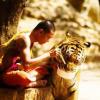
Released: Seeking the Master of Mo Pai: Adventures with John Chang by Jim McMillan
宁 replied to Thunder_Gooch's topic in General Discussion
I read the book. Jim's story reminds me of Forest Gump for some reason, 'xept that Gump had a happy ending. Criticising Asian culture through your own American paradigm is sheer stupidity. Publishing it, well... That being said I enjoyed the book, although reading it many times felt like spying on the neighbours, too much personal detail about people that were his friends and companions, thumbs down on this one. BTW (and I don't think that much about this topic!) I had this weirdest dream last night, J Chang being treated for severe illness. The cause of the illness was some sort of punishment for the endless rants on internet forums about the sacred Mo Pai school go figure out that one -

enough with emptiness and dreams. we need new models.
Stosh replied to hydrogen's topic in General Discussion
If one day you met the most wise person of all time , who knew the answers to everything ever asked, A person might ask them if there was a God , or where the universe came from, or if there was 'gold in them thar hills'... Presumably you get an answer ....from that point there is an implied question sequential to the first ,,,or the question was useless really - That second question is " OK, now what do I do ? (about it , knowing what I do now )" The answer- response to the second question determines the path you would take. and so before asking 'What do I do now ?' all the question-answer pairs just supply data. The conclusion to 'What do I do now?' once arrived at, allows a person to proceed and so that is the ultimate question that any person has to answer ,if they are going to control their destiny with intent. SO I dont think anybody needs new models for living , because the question they need to answer hasnt changed. There are paths enough already to assist in answering it, they have worked for millions before us. It changes nothing really to consider the world to be virtual ,or a clockwork, or a dream, or the result of previous universes bumping into one another ... if It doesnt affect What you will do... and you are just as locked into the common human experience ( in all its variety ) as everyone else is. Yes its interesting to speculate , and yes you may gain different perspective but Oildrops is on the money, saying that, living in the moment is really where the attention should be at. -
I do not think that runes is something to meditate on. It is symbols, ideas, alphabet. What is the point to meditate for example on the picture of the moon in a book trying to understand the moon? More over that the runes sounds could be changed very much and signs too. How we know it is authentic runic primordial sounds? I beleive it was distorted from original signs and sounds. For example some people state that runes are protogerman sacred "sounds" but as I know slavic languages I can see there and protoslavic "sounds" which correlate with slavic pagan gods. OK, it can have origin in the common protoindoeuropean language but it was changed with time anyway and now we know only "germanic sounds" but signs could be changed too. There are slavic runes as well and they have different geometry. There were turkish runes in north Asia.... So I want to say that it is just symbols of some primordial archetypes and I do not think one should meditate on it trying to change something in one's own mind. It would be only some "magical" work with the rune Egregor but not with archetypes IMO. How we know what we should change in our energy or mind? Why to meditate on a certain rune if one is not sure what is this rune certain archetype. It can come from some shamanic expereince or dream but not from just one's mind like "I think it should help me because... ". IMO runes is just some primordial IDEAS and steps in the spiritual path corrilated with sun calendar. This is more what we should change in ourselfs in order to feel more harmony, how to abandon our karma and be more enlightened
-

enough with emptiness and dreams. we need new models.
C T replied to hydrogen's topic in General Discussion
Ah, but most do not realize that without dreams, technology could never have advanced to what it is today. If the Wright brothers did not dare dream, we'd still be rowing across waters to get to the farther shores. Moreover, without emptiness, how will dreams manifest? Is emptiness not the vast, endless fabric from which dreams arise? Yet, there, in the hearts of those who dare to turn their dreams into reality, infinite inspiration and courage springs forth, leading men and women of resolve to conquer limits which ordinarily daunts those of lesser intent. In this manner, then, i would count technology as the very stuff built on dreams and emptiness. I am grateful to dreams, for they often light the darkest nights with hope, and with renewed faith in the belief that for life to be meaningful, those dreams must always be allowed to be bigger than what we think we are. -
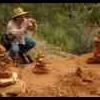
enough with emptiness and dreams. we need new models.
thelerner replied to hydrogen's topic in General Discussion
Do you base that concept on anything other then you liked the movies? Its always struck me as funny, people using the Matrix as a model since in the movie people were living in rags eating crappy food and were relatively powerless. To be in the Matrix was to live unaware or want to escape the real world which was admittedly grungy in Neo's time period. Crap I'm gettiing off course into movie mythos. To me Tech is a distraction not a solution. I'm all for updating spiritual paradigms but not by substituting pop science fiction trilogies. Interestingly enough, Hydrogen is describing a movie I saw last week on Netflix called Cafe, it revolves around the characters in a coffee shop, God walks in and tells the geek programmer he and the world are an AI project. It's very good, you should watch it, but its a movie. Regardless of ones basic paradigm there may be cracks in realities mirror. Dream work- lucid dreaming and hard science if possible in astral travel. The third eye runs across many cultures. I'd love to see serious work that scrapped the dogma and got serious data on what can be seen. In both cases serious long term training programs.



